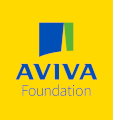Programme overview
In the context of the rising cost-of-living, increasing household debt and decreasing financial resilience, it is now more crucial than ever to understand the real experiences of households on low to moderate incomes. Many of the factors that influence their financial lives are well evidenced and are often front-page news, from global economic trends to regular analysis of the UK labour market. Less understood is what goes on within households as they navigate the options available to them, make decisions and build strategies for their financial wellbeing.
Nest Insight, Glasgow Caledonian University, and the Centre for Personal Financial Wellbeing at Aston University want to build an in-depth understanding of the lived experience of financial insecurity and uncertainty and make that understanding central to policy and market innovation and debate.
With support from the Aviva Foundation, the Real accounts project allows the tracking of income and expenditure over time, capturing the day-to-day and week-by-week ups and downs and strategies that are missed by annual survey data. Building on this proven methodology of past research, including the US Financial Diaries project and Canada Financial Diaries project, we will use a custom-designed research data collection platform to capture real-time income and expenditure data, supplemented by regular qualitative interviewing.
Together, we want to build an in-depth understanding of the lived experience of financial insecurity and uncertainty, and make that understanding central to policy and market innovation and debate.
Our methodology
Starting in May 2023 for an initial six months, we will work with 50 UK households on low- to moderate-incomes.
Each participating household will be paired with a researcher who will get in touch with them every month to discuss their income, spending and decision making. We are also likely give participants an opportunity to keep a self-recorded diary in between sessions with their researcher, to capture reflections, events and wellbeing.
Each household will also be set up on our bespoke app, My Money Tracker. Powered by Moneyhub, this tool will allow households and researchers to collect a significant amount of accurate information about household income and spending, while minimising the burden on research participants. My Money Tracker's automated function will categorise incomings and outgoings, while leaving flexibility to manually enter cash and in-kind transactions. You can read more about how we are addressing ethical and data protection considerations here.
We hope that the Real Accounts project will provide a valuable research tool for future use beyond the current project.
The partnership

Our mission is to find ways to support low- and moderate-income workers to be financially secure, both today and into retirement. We conduct rigorous, cutting-edge research, working collaboratively with industry and academic partners to understand the needs and behaviours of the new generation of savers created by the UK’s pensions auto enrolment system. We also consider how self-employed workers and others at risk of missing out on pension saving can be brought in. We use our data-driven insights into this wide range of financial challenges to identify and test practical, real-world solutions. Our findings are shared widely and freely to help inform industry and policymakers so that people around the world can benefit from our work.
Our work is funded by a combination of sponsorships, grants and in-kind support. Our impact is best understood in terms of how our research influences public policy debate and industry practice. Our work has been cited in policy recommendations by a wide range of representative bodies and think tanks. It’s also been cited in the Money and Pensions Service’s 10-year strategy and in House of Commons briefings, and is regularly covered by national media and financial trade outlets, including The Times, the Financial Times and BBC Radio 4’s Moneybox. For more information, visit: nestinsight.org.uk

The Aviva Foundation aims to help people and communities feel in control and positive about their financial futures. Millions in the UK are struggling and worried about money. The cost-of-living crisis has only added to the stress for those already living on an economic knife-edge. The Foundation funds organisations working on new ways to help people prevent and prepare for financial challenges, or deal with and recover from financial setbacks. Its ambition is to tackle difficult problems in new ways. The Foundation gives organisations the support and stability they need so they can use their expertise to innovate and transform the lives of those who need it the most. For more information, visit: aviva.com/sustainability/aviva-foundation/

The Centre for Personal Financial Wellbeing at Aston University is an interdisciplinary, academic, research centre that seeks to get to the heart of the causes and consequences of personal and household financial insecurity. It focuses on providing accessible and timely insights to support a wide range of leaders and decision makers including those in the financial service industry, third sector organisations, academics as well as the general public. For more information, visit: aston.ac.uk/cpfw

Glasgow Caledonian University (GCU) is working, through research and education, on shaping society, influencing governments and transforming people’s lives around the world. GCU is delivering world-leading research with outstanding impact, as evidenced by the results from the latest UK Research Excellence Framework in which 91% of their health research was formally classified as world-leading or internationally excellent, and more than 80% as outstanding for its impact, a result surpassed by only one other university on the UK. The Yunus Centre for Social Business and Health, where the GCU members of the Real Accounts research team are based, conducts world-leading research to conceptualise and evidence ways that lives of individuals and communities can be improved through a better understanding of various community-based and health-focused initiatives. Since 2014, the Centre conducts financial diaries research in the UK through their FinWell programme of work supported by prestigious funders (Chief Scientist Office, Economic and Social Research Council and Guy's and Saint Thomas’ Charity), experienced collaborators and extended policy networks. The research team now also includes GCU’s WiSE Centre for Economic Justice, experienced on gendered intrahousehold financial management. For more information, visit: gcu.ac.uk
How to get involved
Research participants
How to take part
Find out how you and your household can take part, what’s involved and how your participation could make a difference to others in the UK and beyond.
Programme partners
Work with us
By working together, there’s much more we can learn. We believe there are several ways to extend this project, broaden its reach and increase its impact.
Get in touch
If you have a question about this project, or would like to find out more about how you can get involved, please get in touch.
Stay up to date with the latest news and research from the project
Sign up to our mailing list to receive the latest news and research from across the project as well as invitations to free events and information about upcoming partnership opportunities.
